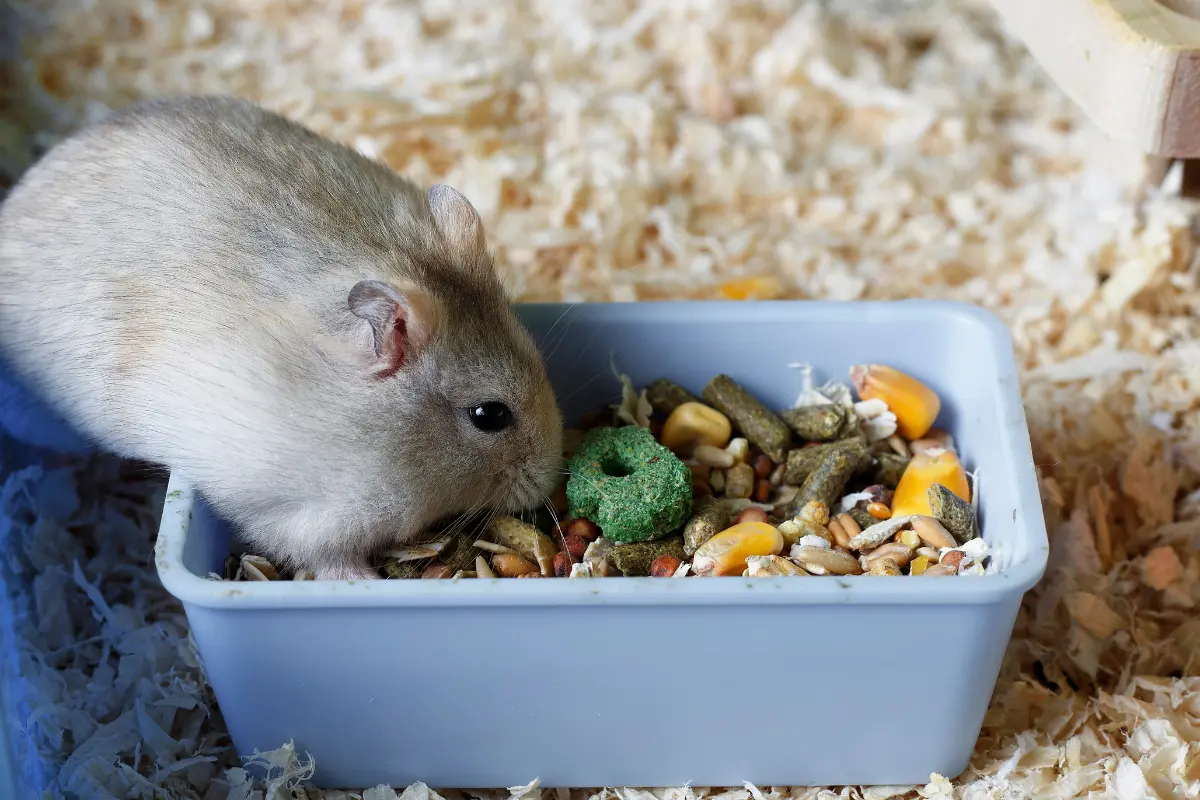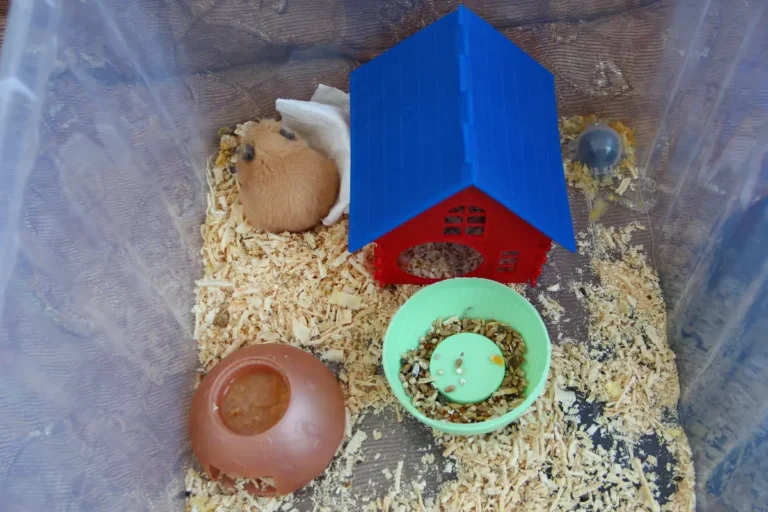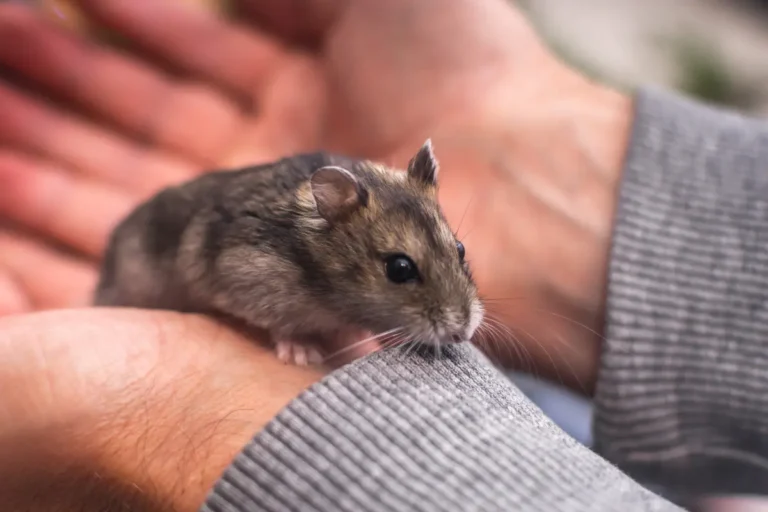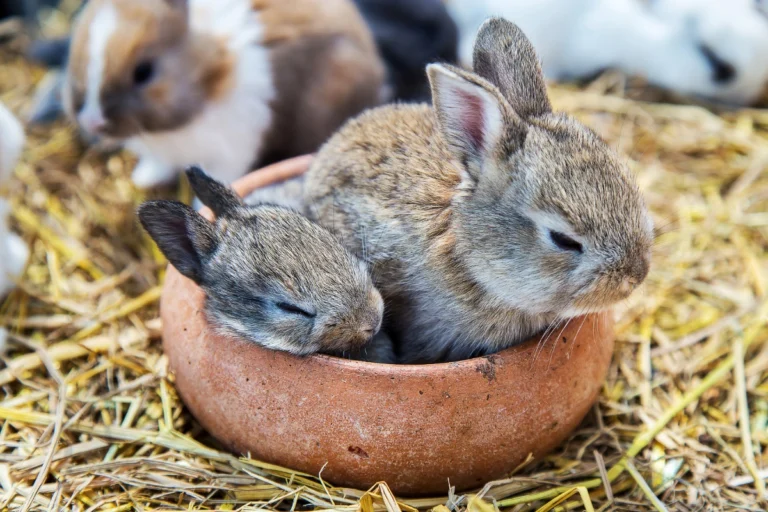Hamster Emergency: How Long Can They Last Without Food
Hamsters are small, hardy creatures that are often praised for their ability to adapt to various living conditions. As pet owners, it’s essential to understand the needs of these adorable critters, especially when it comes to their survival during times of food deprivation.
Whether you’re going away for a short trip, facing an emergency, or simply curious about your hamster’s ability to survive without food, knowing the limits of your hamster’s resilience is critical to ensuring their health and well-being.
How Long Can a Hamster Go Without Food?
Hamsters are capable of surviving without food for a limited time, but this should never be an ideal scenario. On average, a healthy hamster can survive for about 3 to 4 days without food, though this is heavily influenced by several factors such as age, health, environmental conditions, and species.
Why Do Hamsters Need Regular Meals?
Hamsters are “grazers,” meaning they require frequent, small meals throughout the day and night. Unlike some animals that can consume large meals and go without food for extended periods, hamsters have high metabolic rates, burning energy quickly. Their bodies are designed to eat small portions consistently to maintain energy levels, which is why depriving them of food for too long can cause serious harm.
A hamster typically consumes around 2 to 3 teaspoons of food per day, though this can vary depending on the hamster’s size, activity level, and species. Syrian hamsters, being larger, often need slightly more food than dwarf hamsters.
In the wild, hamsters instinctively hoard food as a survival mechanism, stashing away seeds, grains, and other food sources for leaner times. While pet hamsters also exhibit this behavior, it is important to remember that hoarding food is not a substitute for a balanced and regular diet. Hoarded food can spoil or become inedible, so it’s essential to provide them with fresh food daily.
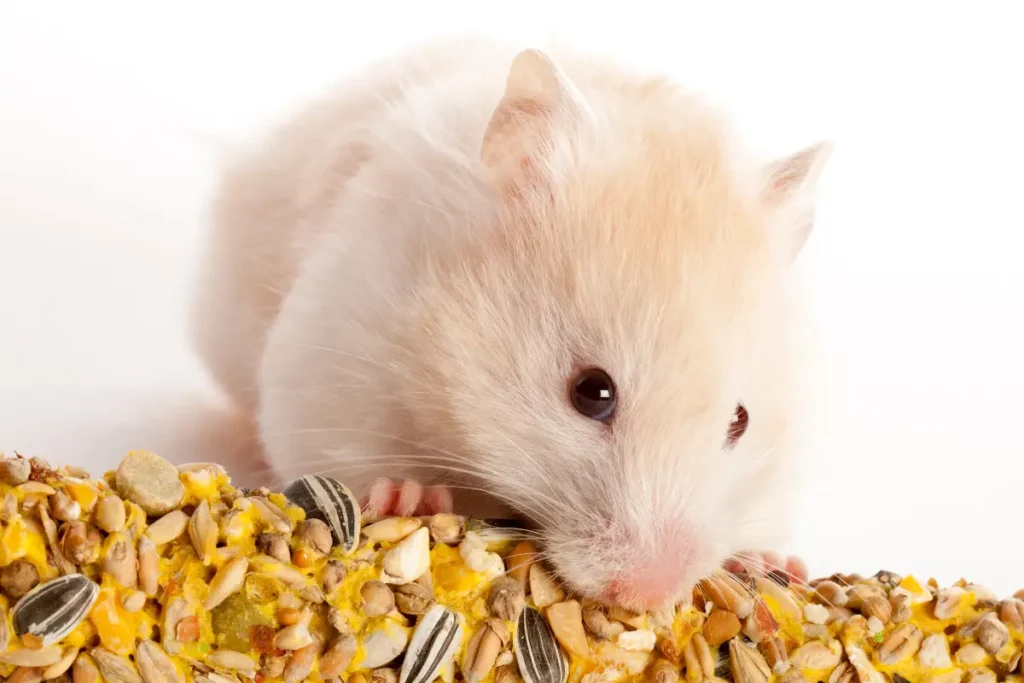
Key Factors Affecting a Hamster’s Survival Without Food
1. Age and Health Status
- Young Hamsters: Baby and juvenile hamsters are still growing and developing. They have higher energy requirements than adults and may not be able to survive without food for more than a day or two. If they don’t eat regularly, their bodies will lack the nutrients needed for proper growth and development.
- Older Hamsters: As hamsters age, their metabolism can slow down, but they still require consistent nutrition to maintain their health. Older hamsters may struggle to cope with food deprivation and may not last as long as younger hamsters without food.
- Sick or Injured Hamsters: Hamsters that are ill or recovering from an injury need extra care and attention, as their bodies are more vulnerable. A sick hamster may not have the energy reserves necessary to survive even a short period without food.
2. Species of Hamster
Different hamster species have varying survival abilities when it comes to food deprivation:
- Syrian Hamsters: Larger and more robust than dwarf hamsters, Syrian hamsters tend to be more resilient to short-term food shortages. They may be able to last a bit longer without food, but it still isn’t ideal for their health.
- Dwarf Hamsters: Dwarf hamsters have higher metabolic rates and typically require more frequent feedings than Syrians. As a result, they are more susceptible to food deprivation and will not survive as long without regular meals.
3. Environmental Conditions
A hamster’s environment plays a critical role in how well they can handle food deprivation. Hamsters living in a temperature-controlled environment (around 65–75°F or 18–24°C) will be able to conserve energy more effectively. However, if the environment is too hot or too cold, the hamster’s body will burn energy more quickly, which can reduce their chances of surviving without food.
- Heat: Hot temperatures can lead to faster dehydration, which is even more dangerous than food deprivation. Dehydration can cause your hamster to become weak, lethargic, and eventually die if not addressed.
- Cold: In colder temperatures, hamsters may hibernate or enter a state of torpor, slowing down their metabolism to conserve energy. However, if they are deprived of food during this state, they can still suffer from malnutrition and die.
4. Food Hoarding and Storage
Hamsters are natural hoarders, storing food in corners of their cages, bedding, or hiding places. If your hamster has been allowed to hoard food, they may be able to survive for a short period without additional food.
However, it’s essential to check that the stored food is fresh and safe to eat. Spoiled or moldy food can make your hamster sick, and they will not be able to survive on food that is no longer nutritious.
5. Water Access
While we are discussing food deprivation, it’s equally important to emphasize that water is even more critical for a hamster’s survival. A hamster may be able to survive for several days without food, but without water, they will not last long at all. Dehydration can set in rapidly, causing severe health problems.
A hamster needs fresh water at all times. If you’re going to be away for any length of time, make sure that your hamster has access to enough water to sustain them. You can also leave extra water bottles or a water dish to ensure they stay hydrated.
How Hamsters Respond to Food Deprivation
When food becomes scarce, a hamster’s body begins to shift into survival mode. They will use their stored glycogen (a form of glucose) for energy during the first day or two. Once the glycogen is depleted, the hamster will start to burn fat and, eventually, muscle tissue to survive.
Here’s how your hamster might respond to food deprivation:
- Reduced Activity
To conserve energy, hamsters will become less active. They will spend more time resting and may become lethargic. If you notice that your hamster is spending more time in their nest and not running on their wheel, it could be a sign that they are running low on energy.
- Behavioral Changes
Food deprivation can lead to irritability, stress, and even aggression. Your hamster may become more territorial or defensive. Lack of food can also cause anxiety and fear, leading to behavioral changes.
- Lowered Body Temperature
As the hamster’s metabolism slows down, their body temperature may drop slightly. If your hamster appears to be cold to the touch or seems sluggish, this could be a sign of food deprivation combined with a slowing metabolism.
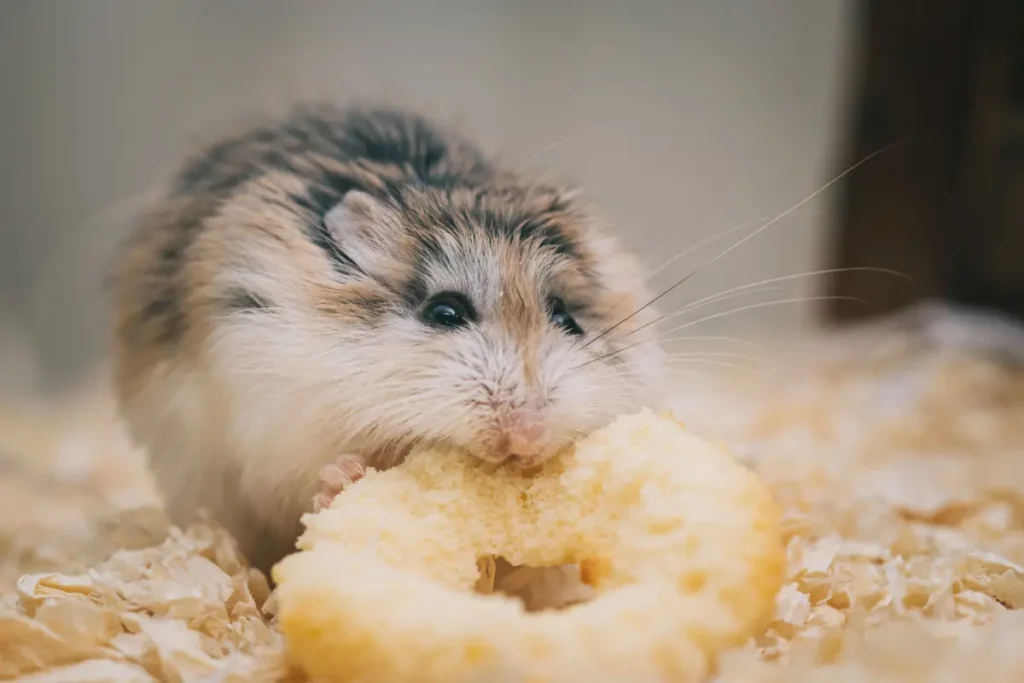
What To Do in a Hamster Emergency
If you’re in a situation where your hamster is without food for an extended period, or if you’re planning a trip and will be away from home, it’s essential to make preparations to ensure your hamster’s safety and well-being:
Make Sure They Have Access to Fresh Water: Dehydration can cause more rapid damage to your hamster than food deprivation, so make sure your pet has access to fresh water at all times. Use a water bottle that is securely attached to the cage to avoid spills, or provide a shallow bowl of water.
Leave Enough Food: Before leaving for an extended period, ensure your hamster has enough food to last. You can allow your hamster to hoard food, or you can leave a mix of dry food, fruits, and vegetables. Make sure to provide enough variety and the right amount of food for the duration of your absence.
Arrange for a Pet Sitter: If you plan to be away for more than a few days, consider arranging for a pet sitter or asking a friend or neighbor to check on your hamster daily. They can replenish food and water, clean the cage, and check your hamster’s health.
Emergency Supplies: Keep emergency supplies like extra food, water bottles, and bedding on hand, in case something goes wrong and you need to make sure your hamster is properly cared for in an urgent situation.
In conclusion, While hamsters are resilient creatures, they cannot go without food for extended periods without serious health consequences. Most healthy hamsters can survive for about 3 to 4 days without food, but this is far from ideal and can lead to complications like organ damage, weakened immunity, and dehydration.
Always make sure your hamster has access to both food and water, and never leave them without care for long periods.
